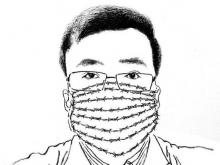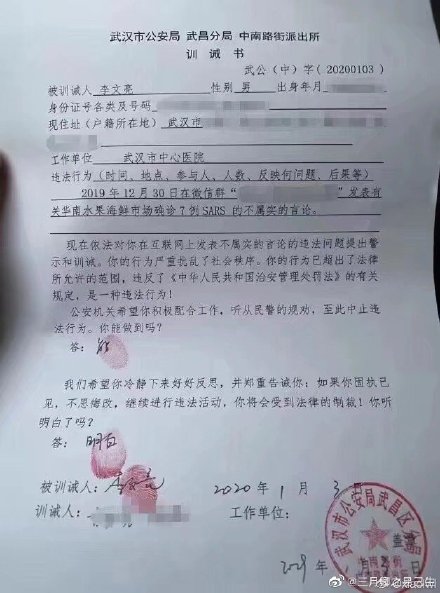- EN
- 中文
The story of Dr. Li Wenliang may help to expose the true nature of China’s repulsive practice of forced confessions inside the country.
 We’ve covered forced confessions in China in-depth here at Safeguard Defenders. From rights defenders paraded on state broadcaster CCTV, to relatives of Xinjiang re-education camp detainees on short video platforms like kuaishou and footage of detainees publicly shamed on police weibo accounts.
We’ve covered forced confessions in China in-depth here at Safeguard Defenders. From rights defenders paraded on state broadcaster CCTV, to relatives of Xinjiang re-education camp detainees on short video platforms like kuaishou and footage of detainees publicly shamed on police weibo accounts.
Just last week we reported on a rush of new police Weibo confession videos of people who had spread “rumours” about the new coronavirus.
While to an outside audience such confessions are obviously faked and an abuse of human rights, to some extent they are accepted and believed by the Chinese public.
Until, maybe now.
The death of Dr Li Wenliang from the coronavirus in the early hours of last Friday morning sparked a huge outpouring of grief and anger from the Chinese public. The news that he had been silenced and threatened by police after he first called attention to this strange SARS-like virus, urging fellow doctors to take precautions back in December was surprisingly well known around the country.
On 3 January, Dr. Li was detained for “spreading fake rumours” and forced to sign a 训诫书 (admonishment notice) saying that he had “published untrue discourse on the internet,” and “severely disrupted social order.”

A day later, state broadcaster CCTV reported on the incident without naming Dr Li, accusing eight people of “posting information on the internet without verification, sharing false information, and creating adverse social impact.” This indicates that the cover up runs right to the top of China’s control-obsessed authorities.
While we mourn the death of Dr. Li, a young man who was only sounding a warning about a disease that is on the cusp of being labelled a global pandemic, we can only hope that his death opens the Chinese public’s eyes to the truth behind China’s forced confessions.
Dr. Li was an ordinary man – not an activist or rights lawyer, not someone blacklisted by the state. In future, confessions in what any form, broadcast and published in China should be seen clearly for what they truly are – illegitimate forgeries by an abusive regime that uses lies to control the truth and cares so little about its own citizens that it silences a doctor who called attention to this terrible disease.